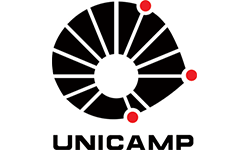
Created in 1962, Unicamp’s goal was to promote science education in the industrial pole of São Paulo’s interior region. As of 2011, the university had 17,500 undergraduate students, 19,000 graduate students, and 2000 faculty members.
Unicamp, which is responsible for around 15% of all Brazilian research,[2] has courses, colleges and institutes of medicine, nursing, speech therapy, pharmacy, dentistry, biology, physical education, chemistry, physics, mathematics (pure, applied and computational), statistics, computer science, engineering (control and automation, chemical, environmental, food, electrical, computer, mechanical, agricultural, and civil), architecture, geography, geology, economics, arts, music, social communication, literature, linguistics, philosophy, history and social science. It runs two professional vocational high schools, COTUCA (in Campinas) and COTIL (in Limeira).
Unicamp’s teaching hospital, Hospital de Clínicas, is the largest public hospital in the region. Unicamp has a semi-independent structure of more than 20 interdisciplinary centers, labs, and groups.
Contact